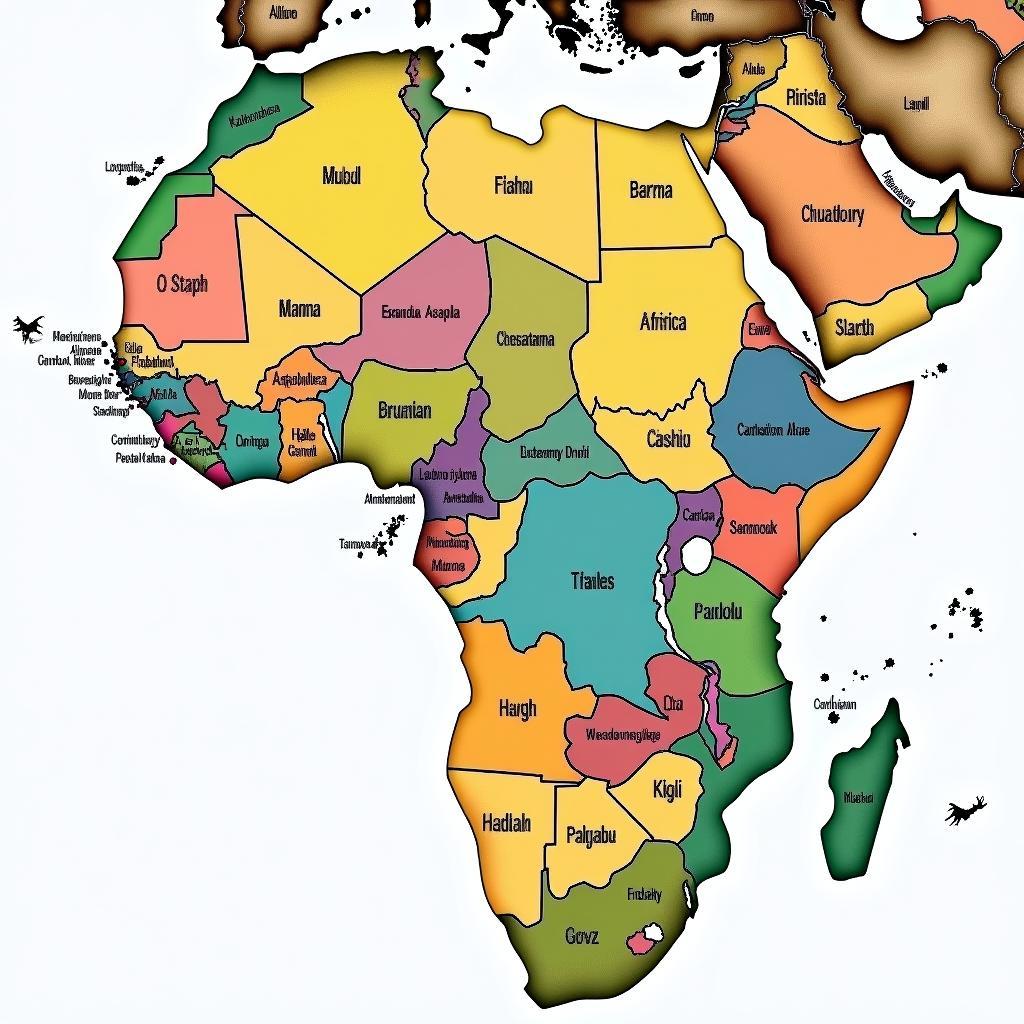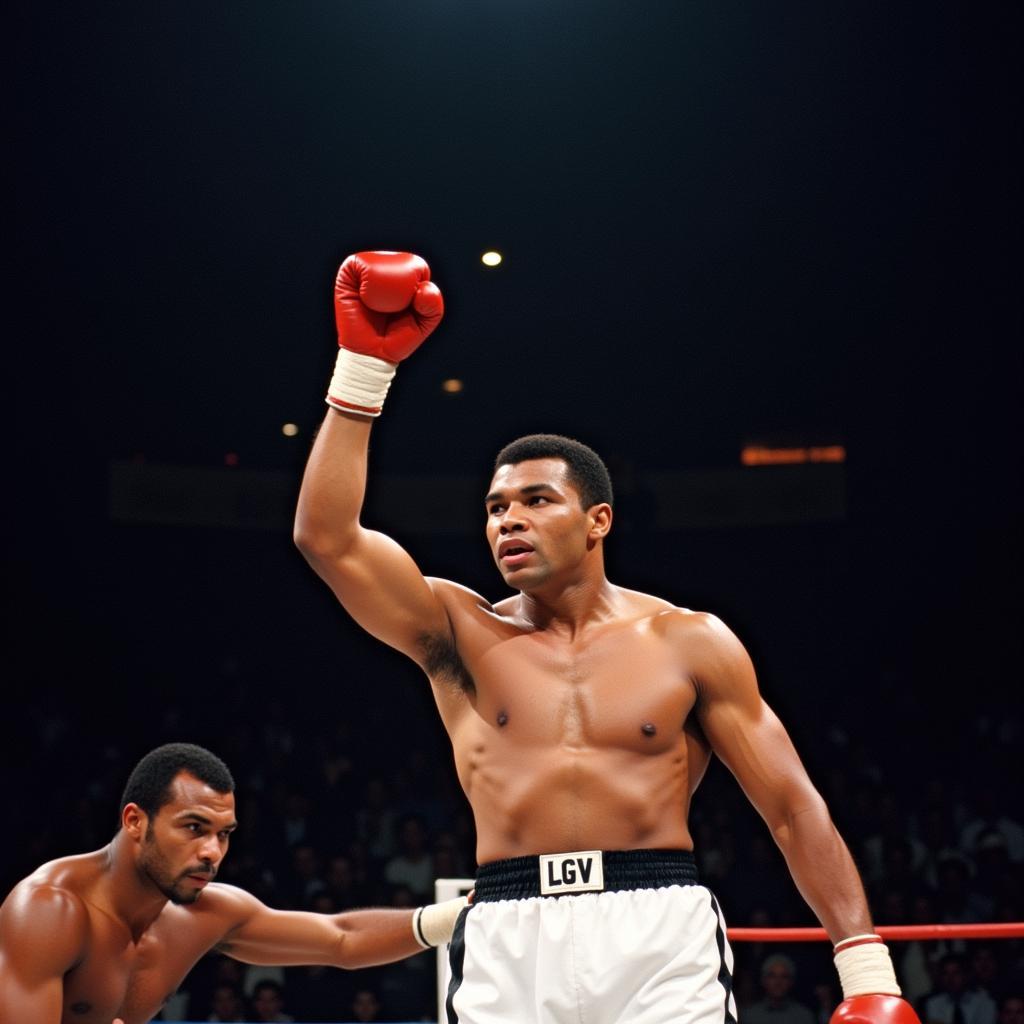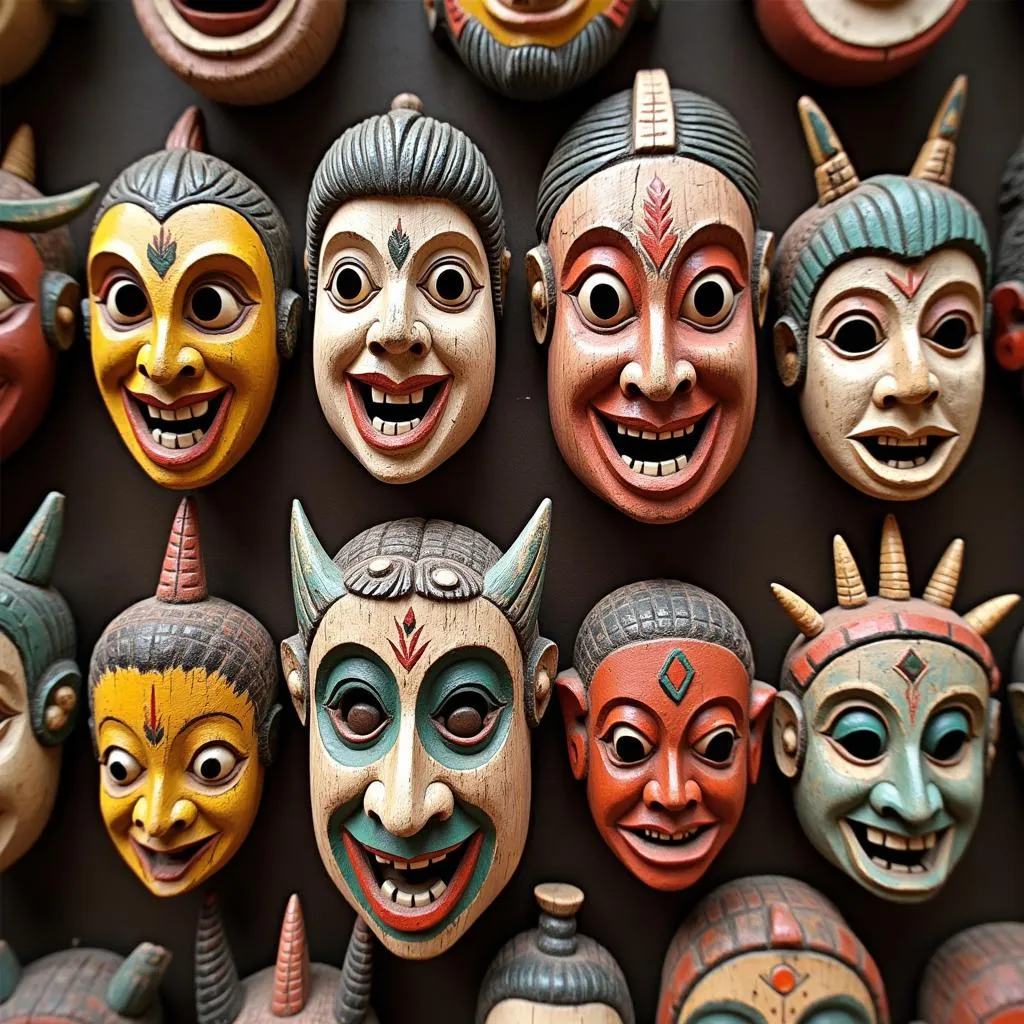African Country List with Capitals
Africa, a continent brimming with diverse cultures, breathtaking landscapes, and rich history, is home to 54 recognized sovereign states. Knowing the African country list with capitals is not just about geography; it’s a gateway to understanding the complex tapestry of this incredible continent. This guide provides a comprehensive list, alongside insights into the significance of these capital cities.
Exploring the African Country List and their Capitals
Each capital city on the African continent tells a unique story. From bustling metropolises to historical centers, these cities serve as hubs of political, economic, and cultural activity. Let’s delve into this list, organized alphabetically for easy navigation.
-
Algeria – Algiers: Algiers, a port city on the Mediterranean Sea, carries the weight of Algeria’s colonial past and its vibrant present.
-
Angola – Luanda: Luanda, a major port on the Atlantic coast, reflects Angola’s growth as a significant oil producer.
-
Benin – Porto-Novo: While Cotonou serves as the economic center, Porto-Novo holds the official title of Benin’s capital.
-
Botswana – Gaborone: Gaborone, a relatively young capital, embodies Botswana’s success story as a diamond-rich nation with a stable democracy.
-
Burkina Faso – Ouagadougou: Ouagadougou, often referred to as “Ouaga,” is a major center for arts and culture in West Africa.
-
Burundi – Gitega: Gitega recently replaced Bujumbura as Burundi’s capital, reflecting a shift in the country’s political landscape.
-
Cabo Verde – Praia: Praia, situated on the island of Santiago, serves as Cabo Verde’s bustling port and administrative center.
-
Cameroon – Yaoundé: Yaoundé, located in the highlands of Cameroon, is a vibrant city known for its colonial architecture.
-
Central African Republic – Bangui: Bangui, situated on the banks of the Ubangi River, has witnessed periods of instability, reflecting the challenges faced by the Central African Republic.
-
Chad – N’Djamena: N’Djamena, located at the confluence of the Chari and Logone rivers, serves as a vital trading hub for Chad.
-
Comoros – Moroni: Moroni, located on the island of Grande Comore, is a small but significant capital in the Indian Ocean.
-
Democratic Republic of the Congo – Kinshasa: Kinshasa, a sprawling metropolis on the Congo River, is one of Africa’s largest cities.
-
Republic of the Congo – Brazzaville: Brazzaville, situated across the Congo River from Kinshasa, serves as the capital of the Republic of the Congo.
-
Côte d’Ivoire – Yamoussoukro: While Abidjan is the economic hub, Yamoussoukro, the birthplace of Félix Houphouët-Boigny, Côte d’Ivoire’s first president, is the political capital.
-
Djibouti – Djibouti City: Djibouti City, strategically located on the Gulf of Tadjoura, is a major port and trading center.
-
Egypt – Cairo: Cairo, one of the oldest and largest cities in Africa, is a historical and cultural treasure trove.
-
Equatorial Guinea – Malabo: Malabo, located on the island of Bioko, is the capital of Equatorial Guinea.
-
Eritrea – Asmara: Asmara, with its unique Italian colonial architecture, offers a glimpse into Eritrea’s past.
-
Eswatini – Mbabane: Mbabane, nestled in the Mdzimba Mountains, serves as the administrative capital of Eswatini.
-
Ethiopia – Addis Ababa: Addis Ababa, a bustling metropolis, is the diplomatic capital of Africa, hosting the African Union headquarters.
-
Gabon – Libreville: Libreville, located on the Atlantic coast, is the capital and largest city of Gabon.
-
The Gambia – Banjul: Banjul, situated on St. Mary’s Island at the mouth of the Gambia River, is the capital of The Gambia.
-
Ghana – Accra: Accra, a vibrant coastal city, is the political and economic center of Ghana.
 African Countries and Capitals: Political Map
African Countries and Capitals: Political Map
-
Guinea – Conakry: Conakry, a bustling port city, serves as the capital of Guinea.
-
Guinea-Bissau – Bissau: Bissau, located on the Geba River estuary, is the capital of Guinea-Bissau.
-
Kenya – Nairobi: Nairobi, a vibrant East African metropolis, is known for its economic dynamism and proximity to national parks.
-
Lesotho – Maseru: Maseru, situated near the border with South Africa, is the capital of Lesotho.
-
Liberia – Monrovia: Monrovia, named after U.S. President James Monroe, is the capital of Liberia.
-
Libya – Tripoli: Tripoli, a major port city on the Mediterranean Sea, is the largest city and capital of Libya.
-
Madagascar – Antananarivo: Antananarivo, often referred to as “Tana,” is the capital of Madagascar and located in the central highlands.
-
Malawi – Lilongwe: Lilongwe, centrally located, is the capital and largest city of Malawi.
-
Mali – Bamako: Bamako, located on the Niger River, is the capital of Mali.
-
Mauritania – Nouakchott: Nouakchott, situated on the Atlantic coast, is the capital of Mauritania.
-
Mauritius – Port Louis: Port Louis, a bustling port city, is the capital of Mauritius.
-
Morocco – Rabat: Rabat, located on the Atlantic coast, is the capital of Morocco.
-
Mozambique – Maputo: Maputo, a vibrant port city on the Indian Ocean, is the capital of Mozambique.
-
Namibia – Windhoek: Windhoek, situated in central Namibia, is the capital and largest city.
-
Niger – Niamey: Niamey, located on the Niger River, is the capital of Niger.
-
Nigeria – Abuja: Abuja, a planned city in central Nigeria, is the country’s capital.
-
Rwanda – Kigali: Kigali, a modern and rapidly developing city, is the capital of Rwanda.
(The list continues with the remaining African countries and their capitals in alphabetical order).
Why Knowing the African Country List with Capitals is Important
Understanding the African country list with capitals is crucial for various reasons. It enhances geographical knowledge, facilitates international relations, aids in business and trade, promotes cultural awareness, and supports academic research. It is a stepping stone to a deeper understanding of this diverse and dynamic continent.
Conclusion
The African country list with capitals provides a valuable framework for understanding the political geography of the continent. From Algiers to Harare, each capital city offers a unique lens through which to explore the rich history, culture, and development of its respective nation. This list serves as a starting point for further exploration and a deeper appreciation of the diverse tapestry of African Life.
FAQ
-
How many countries are in Africa? There are 54 recognized sovereign states in Africa.
-
Which is the largest country in Africa by area? Algeria is the largest country in Africa by area.
-
Which is the most populous country in Africa? Nigeria is the most populous country in Africa.
-
What is the African Union? The African Union is a continental union consisting of 55 member states located on the continent of Africa.
-
Why are some African countries’ capitals not their largest cities? Historical, political, and strategic factors often influence the choice of a capital city, which may not always be the largest or most economically significant city.
Related Articles on African Life
- Exploring the Diverse Cultures of East Africa
- The Impact of Climate Change on African Nations
- Wildlife Conservation Efforts Across Africa
Call us at +255768904061, email us at kaka.mag@gmail.com, or visit us at Mbarali DC Mawindi, Kangaga, Tanzania. We have a 24/7 customer support team ready to assist you.


